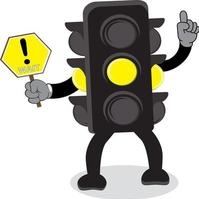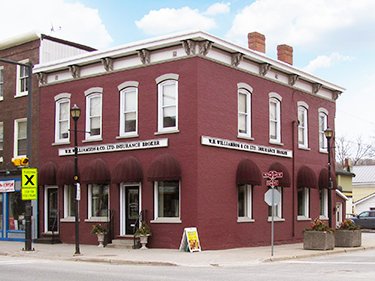Barbecue Season Is In Full Swing: Don’t Go Up In Flames
The joys of outdoor cooking also bring fire and associated risks. Here are some safety reminders for gas and propane barbecues to protect you and your property from harm or damage.
• Never operate a barbecue in an enclosed space, close to a structure, or near combustibles. Have a one metre radius around it free of obstructions.
• Keep your barbecue in tip top shape. Check for hose breakage, valve leaks, and other parts before securing the tank well and turning on the gas.
• When in use, never leave the grill unattended, and when finished turn the tank off before the burners so the remaining gas in the lines can burn off. This can help prevent a flash the next time the BBQ is in use.
• Make sure your fire extinguisher is easily accessible and in good working order.
Additional Tips
• Propane companies use an additive to create an unpleasant odour like rotten eggs to make a propane leak easier to detect, so you can shut off supply immediately, stop using the grill, and clear the area.
• Although the risk of carbon monoxide is low when using a BBQ outdoors, it is not entirely eliminated. Learn to recognize the signs of CO2 poisoning and take appropriate action.
• Store propane tanks in an upright position, in a spot where they are unlikely to be knocked or bumped to prevent any safety risk.
|
|
|
| March is Fraud Prevention Month | |
|
March is Fraud Prevention Month
Claims which are proven to be fraudulent, not only will be denied, but their overall cost to Canadians is over $3 billion annually. Up to 15% of your policy premium is used to cover the cost of fraudulent claims. In addition to this, if you are caught committing or attempting to commit fraud, your policy may be cancelled outright, and you may pay higher premiums or be denied insurance in the future. The offense is punishable on conviction, by a maximum of 10 years imprisonment for cases involving an amount over $5000, or otherwise a maximum of 2 years imprisonment.. Common types of fraud or attempted fraud include: lying about the way a loss occurred, adding items or inflating the value of items in a claim, filing fraudulent automobile accident or damage claims, withholding information about past accidents, traffic convictions, claims, policy cancellations or non-renewals, and receiving payments for treatments not received. You may unwittingly be the victim of a fraud through no fault of your own. Make sure you deal with reputable tow truck drivers, healthcare providers, etc. If someone you know is committing insurance fraud on a home, car, or business policy, you can report it to Crime Stoppers at 1-800-222-TIPS. |
March is Fraud Prevention Month
Claims which are proven to be fraudulent, not only will be denied, but their overall cost to Canadians is over $3 billion annually. Up to 15% of your policy premium is used to cover the cost of fraudulent claims. In addition to this, if you are caught committing or attempting to commit fraud, your policy may be cancelled outright, and you may pay higher premiums or be denied insurance in the future. The offense is punishable on conviction, by a maximum of 10 years imprisonment for cases involving an amount over $5000, or otherwise a maximum of 2 years imprisonment..
Common types of fraud or attempted fraud include: lying about the way a loss occurred, adding items or inflating the value of items in a claim, filing fraudulent automobile accident or damage claims, withholding information about past accidents, traffic convictions, claims, policy cancellations or non-renewals, and receiving payments for treatments not received.
You may unwittingly be the victim of a fraud through no fault of your own. Make sure you deal with reputable tow truck drivers, healthcare providers, etc. If someone you know is committing insurance fraud on a home, car, or business policy, you can report it to Crime Stoppers at 1-800-222-TIPS.
 Who’s At Fault in Caution Light Crashes?
Canada’s dreaded amber light is the source of numerous intersection crashes, resulting in untold insurance claims. Because of this, be especially vigilant when turning left against yellow caution lights at intersections. Although the outcome of a given case will be determined based upon the facts that are unique to that case, a driver making a left-hand turn will generally not be able to rely on an assumption that the other driver will stop for the yellow light.
Fault for the resulting collision will likely be found in such cases on the part of the left-turning driver.
Drivers have a legal duty to stop for a yellow light, but only if they can do so safely. Otherwise, they are allowed to proceed through the intersection with caution.
The Highway Traffic Act states that a left-turning driver must ensure the turn can be safely made, so it is the responsibility of that driver to make sure it is safe to proceed through the intersection.
Some drivers attempting to make a left turn on a yellow light may assume that an approaching vehicle will stop; however, this assumption does not lessen or negate liability for left-hand turning drivers in the event of a collision.
Who’s At Fault in Caution Light Crashes?
Canada’s dreaded amber light is the source of numerous intersection crashes, resulting in untold insurance claims. Because of this, be especially vigilant when turning left against yellow caution lights at intersections. Although the outcome of a given case will be determined based upon the facts that are unique to that case, a driver making a left-hand turn will generally not be able to rely on an assumption that the other driver will stop for the yellow light.
Fault for the resulting collision will likely be found in such cases on the part of the left-turning driver.
Drivers have a legal duty to stop for a yellow light, but only if they can do so safely. Otherwise, they are allowed to proceed through the intersection with caution.
The Highway Traffic Act states that a left-turning driver must ensure the turn can be safely made, so it is the responsibility of that driver to make sure it is safe to proceed through the intersection.
Some drivers attempting to make a left turn on a yellow light may assume that an approaching vehicle will stop; however, this assumption does not lessen or negate liability for left-hand turning drivers in the event of a collision.




 W.H. Williamson & Co. Limited
W.H. Williamson & Co. Limited




